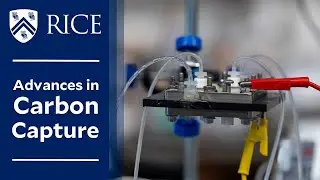Rice’s Biotech Launch Pad to lead commercialization of implant treatment for obesity and diabetes
Rice University is part of a multiuniversity research team that has secured an award of up to $34.9 million from the Advanced Research Projects Agency for Health (ARPA-H) to accelerate the development of a bioelectronic implant designed to improve adherence for obesity and type 2 diabetes (T2D) treatment while reducing development and manufacturing costs.
Rice University’s Biotech Launch Pad will lead the commercialization effort for “Rx On-site Generation Using Electronics” (ROGUE), a self-contained, durable implantable device that houses cells engineered to produce T2D and obesity therapies in response to patients’ physiological needs.
Carnegie Mellon University leads the team of researchers driving the accelerated development and testing of ROGUE, which functions as a “living pharmacy” designed to make biologic drugs, or biologics (a rapidly expanding group of therapies derived from living cells), accessible in the body on demand. With a target cost of goods below $1,000 for at least one year of therapy, ROGUE aims to significantly lower the costs of biologics-based treatments.
ROGUE uses closed-loop bioelectronics to support, monitor and adjust drug production and dosing as well as communicate with patients. The implant will be recharged using a wearable device weekly or even less frequently, eliminating the need for managing daily, weekly or monthly medication administering, storage and restocking. This technology is designed for rapid and cost-effective deployment via a minimally invasive procedure in an outpatient clinic.
“ROGUE’s innovative design combines efficient biological manufacturing, long-term durability and patient-friendly features that have the potential to transform the landscape of biologics delivery,” said Omid Veiseh, professor of bioengineering and faculty director of the Rice Biotech Launch Pad. “With the Rice Biotech Launch Pad leading the clinical translation and commercialization efforts, this funding will allow us to expedite the development and clinical trials of this groundbreaking technology, making it accessible to patients sooner.”
In-house entrepreneur and executive director of the Rice accelerator, Paul Wotton, will be involved in every step of the process to ensure the evolution of this technology from research to clinical translation to an independent company.
“With the Biotech Launch Pad, our goal is venture creation in parallel to the groundbreaking research at Rice and its collaborating institutions,” Wotton said.
#diabetes #obesity #research
https://news.rice.edu/news/2024/rices...



















